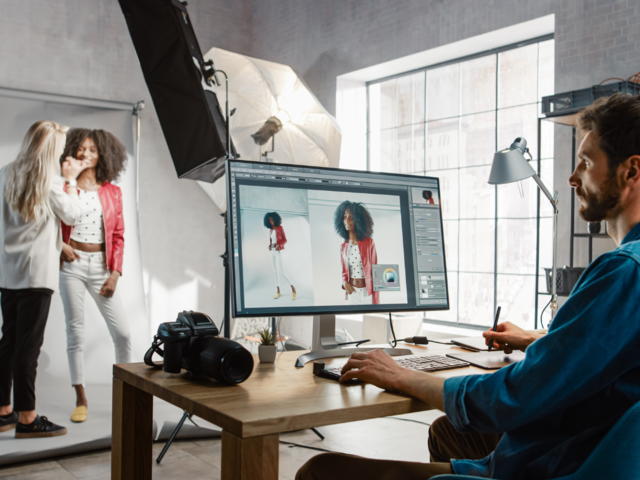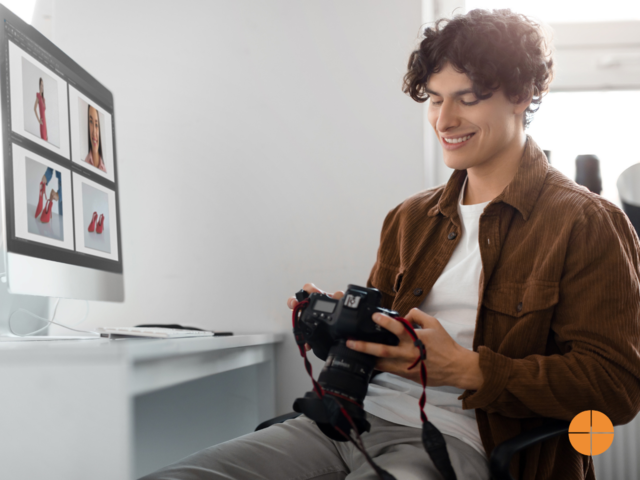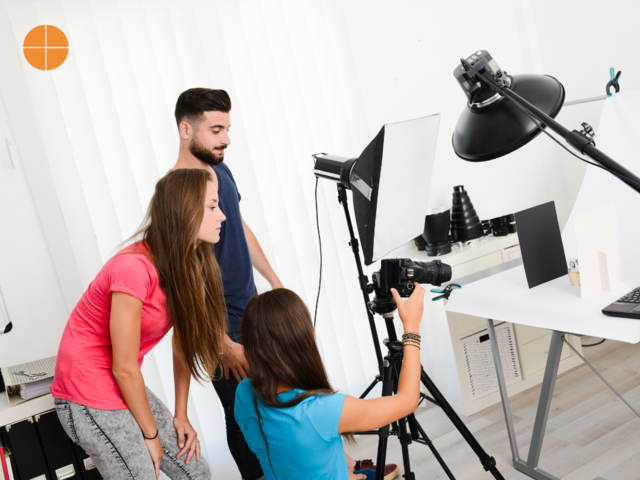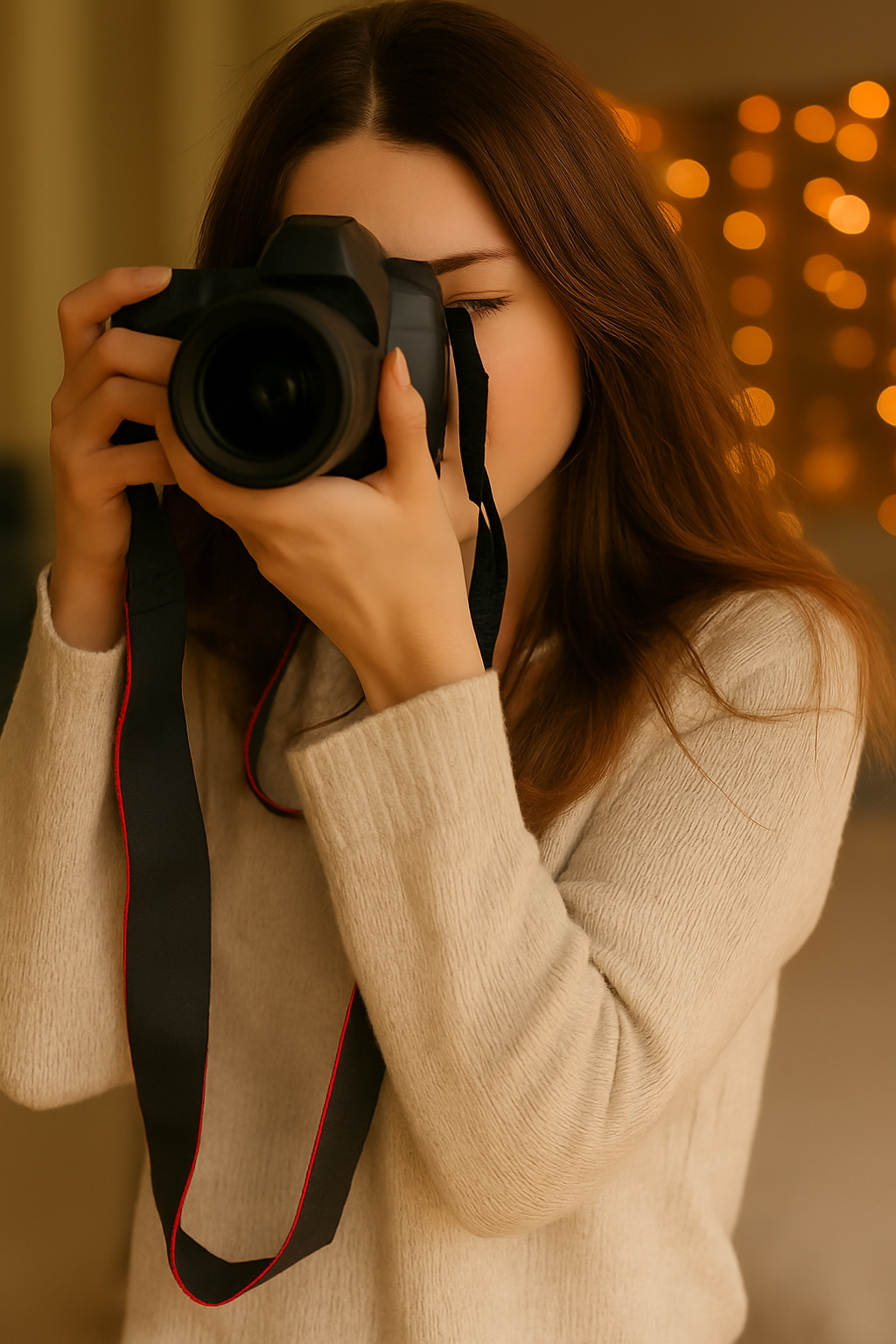AI is here. It has well and truly arrived and its presence is permeating every facet of technology, including photography. It is a staple feature in many cameras, smartphones and editing software and its benefits are undeniable. The digital advancement of photography coupled with the more advanced capabilities of AI is revolutionising photography and its capabilities.

Capturing the Future: The Impact of AI on Photography
A most predictable area where AI is improving digital photography is through enhanced image quality. Deep learning algorithms can now evaluate photographs and automatically modify settings for improved image quality. This translates as the automatic reduction of noise, image sharpness in low light and detail enhancement. AI is also getting involved with framing by offering intelligent composition assistance. This is particularly helpful for novice photographers who may need a little help aligning horizons or even indicating the optimum times to shoot an image. By detecting a subject in the frame, AI can advise on how to follow classic compositional rules, such as the Rule of Thirds. This ensures a technically correct image has been captured.
For portrait photographers, tools with AI capabilities include advanced object and face detection where the camera can recognize and track several subjects or faces in the same scene. This means the subject remains in focus and within the optimum exposure at all times. Advanced systems can even forecast subjects' movement paths, making it easier to capture fast-moving items.

Exploring Enhanced Image Quality, Virtual Realities, and the Unreplaceable Human Touch
The most well known areas where AI’s input is welcome is in post production. These methods have become more and more streamlined and software such as Adobe's Sensei can automate processes including image labelling, selection, and even editing. With little to no personal interaction, tools may now auto-correct flaws, improve skies, and make specific tweaks.
Old, damaged or faded photographs are also entering a new era of restoration. For the first time, we can view vintage photographs as though they were new. Black & white photographs can be automatically colourized and blurred focus can be sharpened.
AI also heralds the arrival of the integration of Virtual Reality (VR) and Augmented Reality (AR). Algorithms can stitch photographs together to produce 360-degree panoramas or simulate 3D settings, allowing viewers to completely immerse themselves in the virtual scene. And finally, drone photography has had an AI upgrade with navigation systems that can automatically avoid obstacles and even track subjects. Aerial photography has come a long way and it seems now, it knows no heights.

But the question is, can AI replace human photographers?
While all the above benefits of AI will help photographers with the technical aspects of photography as well as saving time and in some cases, energy. There is no replacement for the human eye. The photographer's gaze goes far beyond their camera settings and framing, it is ways of seeing, it is how they see the world and it is the unique perspective that only the photographer in that moment can possess.
While technical skills are important, they only exist so the photographer can look past the distraction of making the most from their equipment, and get to the business of creating an image. Portrait photography for example, only succeeds when the photographer has managed to get past the veneer of a person. They need to penetrate the exterior wall of the subject and find a way to capture the true essence of the person. This is only possible with a human connection. The same applies for street photography. It helps to know how to have your camera settings ready at a moment's notice, but a machine will not spot the absurdities of people or the quirks of human behaviour. These are the things that set good photography apart from great photography.
In the case of photojournalism, whether or not a camera or some software is capable of generating realistic images that have been manipulated to skew the truth, this has always been a possibility in photography, it is simply harder to spot nowadays. But what people tend to forget is that a photojournalist remains bound by the same rules of ethics that they always have been. AI may be an incredibly powerful tool of photography and will transform how images are captured, it will never replace the human photographers for the simple reason that it is humans who view the images and it is humans who will be moved, or not moved by what they see. AI will help photographers speed up processes or capture an image faster and better, but it cannot think for a photographer and it cannot see what they see.
Our Photography Courses will help you improve your photography skills.
If you are interested in photography and want to improve your skills? Take a look at our carefully curated photography courses. Whether you're a novice learning the fundamentals, an enthusiast looking to explore niche genres, or a professional eager to improve your skills, we have a course for you. Our experienced tutors combine years of knowledge with hands-on assignments to ensure that you not only learn, but you will also put what you have learned into practice. Enrol now to begin your journey towards mastering both the art and science of photography!

